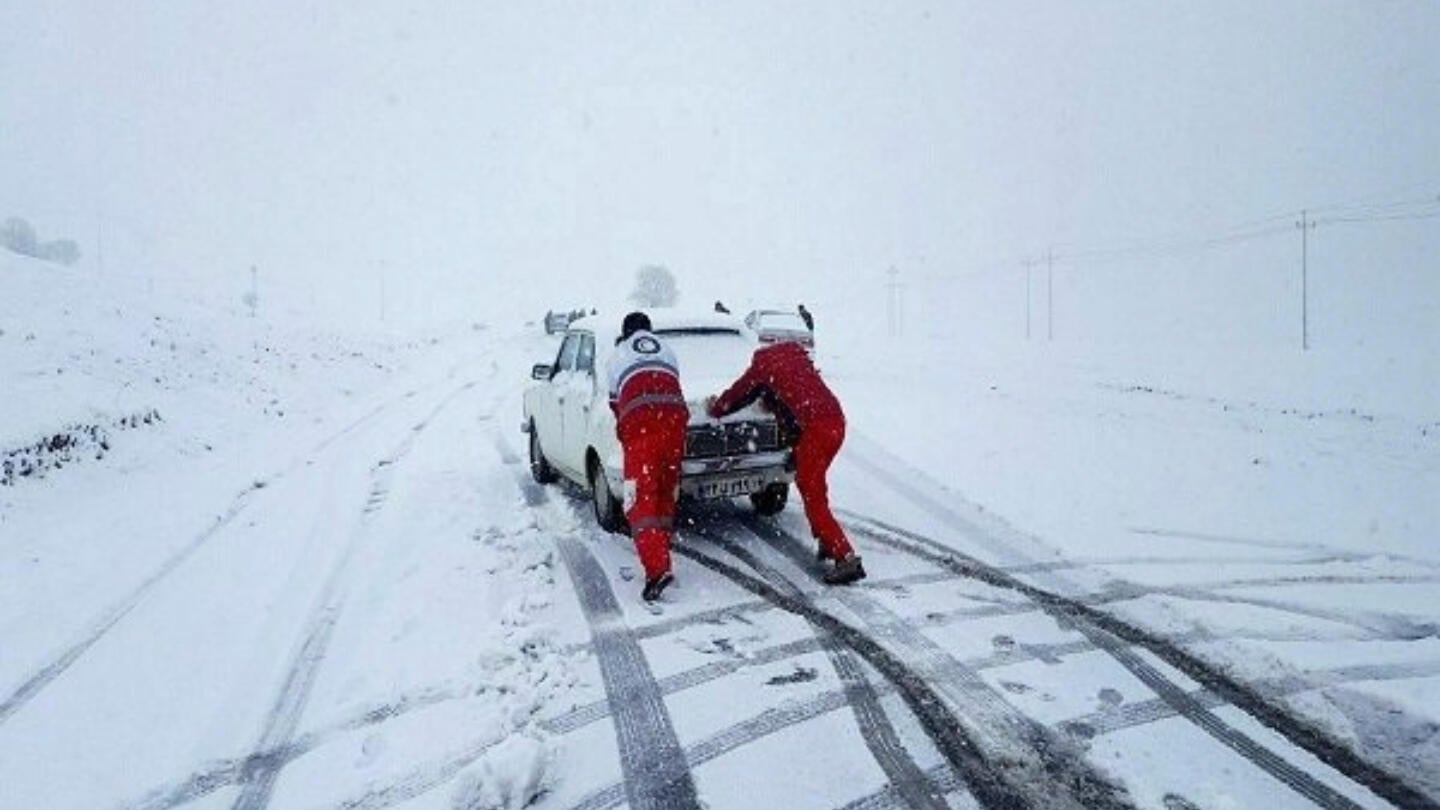HARSIN, Kermanshah province, Islamic Republic of Iran, December 2022 – Snow was falling hard on the winding mountain road when senior midwife Marzieh Hashemi felt the ambulance begin to spin. “Oh My God!” the driver cried as the vehicle skidded across the ice, rolled, and came to rest on its side. Inside, 33-week-pregnant Shima – already in pre-term labour and at risk of a uterine rupture after a previous Caesarean – clutched Ms. Hashemi’s hand.
“I heard my daughter’s voice in my head saying, ‘Mum, take care of yourself.”, before I left home early in the morning. I had no choice but to take care of everyone.” – Marzieh Hashemi
Minutes earlier, Ms. Hashemi had been praying her patient would hold until they reached the provincial hospital 30 kilometres away – the only facility with an anaesthesiologist able to perform an emergency C-section. Now, tossed across the overturned cabin, her shoulder ablaze with pain and her hand flayed by broken cabinet doors, she focused on one thing: the baby’s heartbeat.
With numb fingers she retrieved her sonicaid. Silence. The cold inside the ambulance seemed to deepen as she searched again. Then, faint but steady, came the heartbeat of life. “The baby’s alive!” she shouted to the driver fighting his way out of the crushed front cab. “We’re all okay.”
Crises do not stop births. Still, women are twice as likely to die during pregnancy or childbirth in crisis settings when access to skilled care is cut off. Yet midwives like Ms. Hashemi continue to serve with extraordinary courage, often as the first and sometimes the only health responders.
Iran’s rugged western provinces are no strangers to emergencies: earthquakes, floods, and harsh winter storms regularly sever roads to specialist care. Equipping rural referral health facilities with emergency obstetric kits, simulating mass-casualty drills, and training midwives on rapid-response in emergencies, including hypothermia management and respectful care, will help health systems stay resilient. It was the training that guided Ms. Hashemi’s every move as she splinted the driver’s arm, monitored Shima’s contractions, and radioed for backup – all the while trapped in a snow-bound ambulance.
Rescuers reached them an hour later. Shima was rushed into surgery; her daughter was born healthy and breathing. Shortly after birth, Ms. Hashemi was rushed into the operating room for a fractured clavicle and torn ligaments. “I could finally feel the pain once I knew my daughter was safe,” she laughed.
“In the quiet of the maternity ward, hearing the baby’s heartbeat felt like spring breaking through the snow.” – Marzieh Hashemi
The global picture
Stories like Marzieh’s echo worldwide. A shortage of nearly one million midwives threatens the lives of women and newborns, and funding cuts to humanitarian aid risk widening the gap. Evidence shows that midwives can provide 90 percent of essential reproductive, maternal, and newborn health services – and that universal midwifery-led care could save 4.3 million lives each year by 2035.
To close the gap, UNFPA and partners have launched the Midwifery Accelerator, a global drive to strengthen midwifery education, leadership, and deployment in more than 125 countries, including Iran.
This International Day of the Midwife, UNFPA honours frontline health workers like Marzieh Hashemi who brave snowstorms, conflict zones, floods, and earthquakes to uphold women’s rights to safe childbirth. Their courage keeps heartbeats up – even when an ambulance lies broken on an icy road.
As Ms. Hashemi returned home that night, her own children ran to greet her. “I promised I’d be back soon,” she said, cradling her bandaged arm. “And a midwife never breaks her promise.”
UNFPA calls on governments and donors to invest in the Midwifery Accelerator, ensure safe working conditions, and guarantee every midwife the respect, supplies, and support she needs – because when crises strike, midwives step up, and lives depend on them.
....................................................................
Note: The story was received following the call for submissions from UNFPA Iran through the Iranian Midwifery Association in April 2025.


